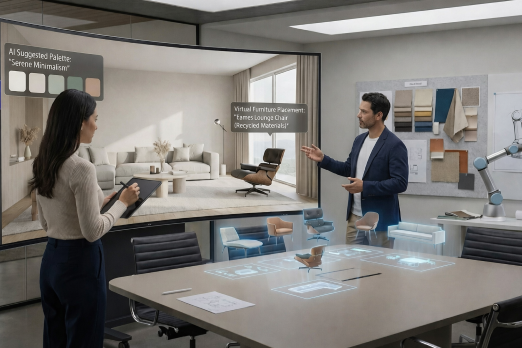The Scope of a Career in Interior Designing
The scope of a career in interior design is varied. It involves setting timelines, creating plans and mood boards, using computer applications, and inspecting the finished designs. It requires a degree or diploma, excellent communication skills, and proficiency in design software. Interior design careers typically require several years of professional experience and can be rewarding and lucrative.
Job Outlook for Interior Designers
The interior design field is a thriving one with a promising job outlook. According to significant reports, the profession is expected to grow by 4 percent by 2028. This is a much faster rate than the average growth rate for other professions. The demand for interior designers is expected to increase in high-income areas and in metropolitan areas with an aging population. Those with good design skills and a flair for innovation can find better opportunities in these areas.
Interior designers need to be both artistic and people oriented. Typically, the education required is a profession degree in a related field. Some states require designers to be licensed. Others offer certifications

Salary for Interior Designers
Salary ranges for interior designers vary greatly by area. Interior designers have more responsibility and oversee managing projects and presenting designs to clients. They also earn higher salaries than design managers and project managers, and they are usually licensed to design spaces that meet health and safety codes, as well as other welfare requirements. Demand for interior designers is high, which can result in higher salaries.
Education Requirements for Interior Designers
Most interior design firms require students to have a diploma or a certification before they can work in the field. Education in interior design can include drawing, computer-aided design, and sketching. Education requirements for interior designers can vary based on specialty. Specializations include home furnishings and furniture, design, and 3D imaging. Having the education to specialize in a particular area can also give students an edge in the job market. According to reliable reports, specialization can result in a more varied job outlook and higher pay.
Many interior design schools also require students to take a certification exam to practice as interior designers. It also tests their knowledge of lighting design and space planning.

Credentialing Options for Interior Designers
As a professional interior designer, you can choose to pursue several types of certification to further your knowledge. Earning a certification will help you stand out among other professionals, as it will show prospective employers that you have completed the necessary coursework. It will also be helpful on your resume and will help you make a good first impression during the interview process. Additionally, certification will help you expand your knowledge of the industry, including specifics related to building codes and public safety. These additional skills can open many opportunities for your career.
The Bottom Line
In order to become a successful interior designer, you must have a diploma or professional degree and two years of supervised work experience. You should choose a high-quality program that emphasizes interior design. Additionally, you should be familiar with building codes and inspection regulations. Lastly, you should have a basic understanding of universal accessibility standards.
Frequently Asked Questions (FAQs)
1. What is the average starting salary for an interior designer?
The starting salary can vary widely based on location, the scale of projects, and the designer's educational background, but generally ranges from moderate to high compared to other professions.
2. How long does it typically take to complete an interior design degree?
Most interior design degrees take 2 to 4 years to complete, depending on whether it's an associate's degree or a bachelor's degree program.
3. What skills are most important for a successful career in interior design?
Key skills include creative design, technical proficiency with design software, project management, and strong communication skills.
4. Can interior designers work independently or do they need to be part of a firm?
Interior designers can work independently as freelancers or can be part of design firms; the choice often depends on personal career goals and market opportunities.













